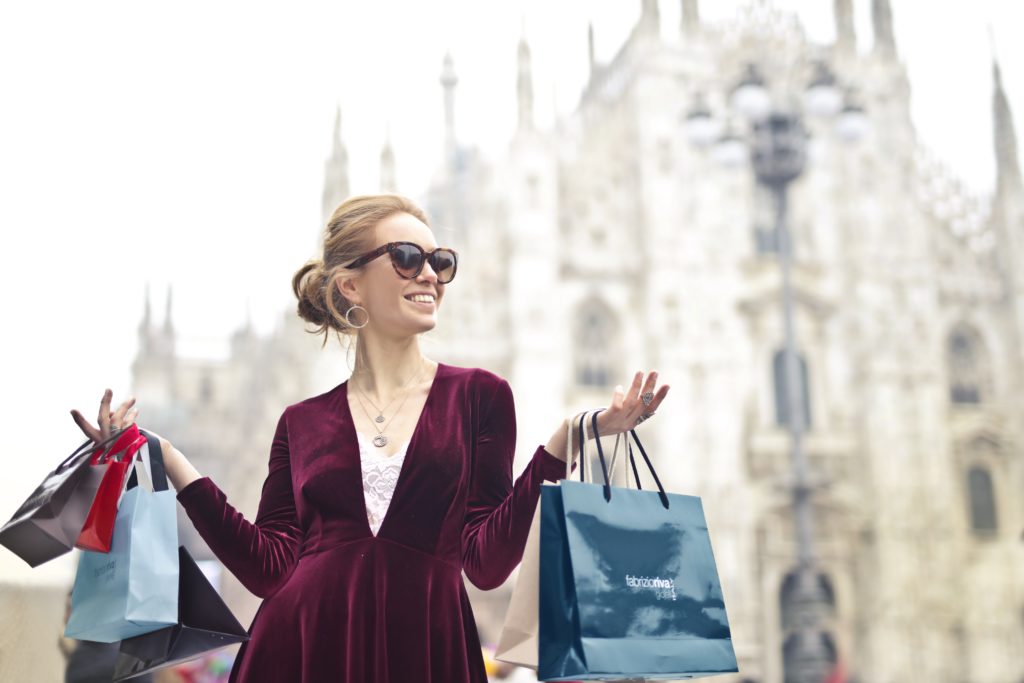Does the online experience in a luxury market make sense?
Luxury goods market in the past
Prestigious boutiques used to be the very first association with the luxury goods market that comes into one’s mind. The offline retail stores used to generate the vast majority of that market’s revenue. Most likely, the idea behind such a strategy was quite simple – the typical buying persona will not be willing to spend relatively a large amount of money online. Instead, with the support of a professional advisor and the personalized customer experience, the customer felt appreciated.
Does it effectively mean, that online experience in a luxury market makes no sense?
The online luxury sales are projected to grow at twice the market rate and capture 18% of all sales revenue by 2023.
Recalling the introduction of this article, where I wrote about the uniqueness, professional support and prestige, how is that possible?
The market is changing
Who has the biggest influence and who demands radical changes in the luxury goods market? You are correct – people born between 1980 and 2000 – the Millenials (or maybe it would be more appropriate to call them the Digitals?). That demographic group has very specific requirements and habits, they prefer online rather than offline, they love blogs, social media, price comparison…
With over 71 million people, Millennials are now the largest living generation in the USA that is actively setting trends and raising demands against their favourite products and services. Given that, they spent roughly over $600 billion annually, they must be heard by the business. That is why one of the biggest challenges for the whole retail is to become Millenial-friendly. Luxury good’s market is surprisingly no exception to that rule (based on BCG and Altagamma, Millennials will contribute the most – 130% to the luxury market’s growth over the next six years). The results of the survey conducted by Luxe seems to be proving that – Millennials were asked if they were given CHF 5 000 to spend on a watch, which type would they prefer: one luxury watch or rather the latest smartwatch replaced every year (for the next 10 years). The results are depicted below.
Being Millennials friendly
Millennials use the web on a daily basis. Having the ability to compare prices, technical specs, read friend’s recommendations, be a part of a community is daily bread for this generation. Brands that will not keep up those trends will most likely become irrelevant for them. Luxe took a closer look at the luxury watches market – 30% of them are bought online, but 60% of all purchase decisions are influenced by an online experience. Antologic analyzed the 30 top brands of luxury watches from that angle and the results are corresponding to the Luxe’s observation – all of the brands have a strong, digital representation, however only 30% of their websites offer full eCommerce flow (online purchase).
What’s next?
Traditional strategies of luxury brands will not stand the test of time, these must evolve and become aligned with the needs dictated by the rapidly changing habits of the customers. Based on Stellarising report, 55% of Millenials shoppers are “very interested” in luxury goods purchase and a lot of producers actually noticed that and has already launched digital platforms (e.g., Gucci, Net-a-porter). Some still need to leverage their digital presence and adapt to a relatively new situation.

How to make the customer feel special in an on-line world? How not to lose the uniqueness of the offline shopping experience? These are serious questions that must be answered. We will try to do that in the upcoming article. Stay tuned.




